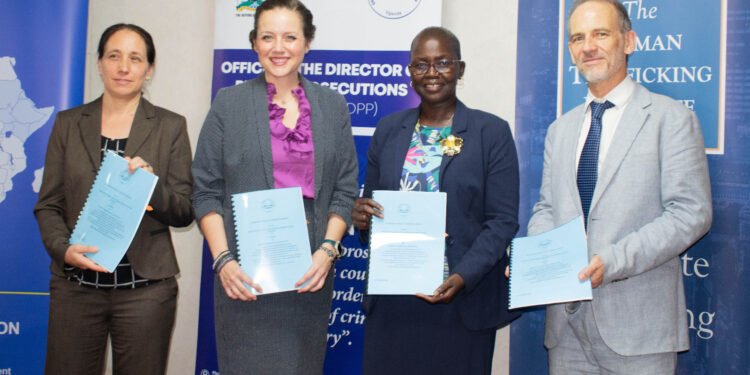On Tuesday 13th of February 2024, Uganda took a decisive step forward in the fight against human trafficking by forging a strategic alliance between the Office of the Director of Public Prosecutions (ODPP), CIVIPOL, and the Human Trafficking Institute.
This collaboration, aimed at implementing Standard Operating Procedures (SOPs) and providing robust support for victims, aligns with broader efforts across Africa to combat trafficking.
According to recent statistics from the International Labour Organization (ILO), Africa remains a significant hub for human trafficking. The continent accounts for approximately 9.2 million victims of modern slavery, with women and children disproportionately affected.
Moreover, the Global Report on Trafficking in Persons highlights Africa as a source, transit, and destination region for trafficking, underscoring the urgent need for comprehensive anti-trafficking measures.
Within Africa, Uganda occupies a pivotal position in the fight against trafficking. The country serves as both a source and transit point for trafficking networks, with victims often subjected to exploitation within the region and beyond. Recent data from the United Nations Office on Drugs and Crime (UNODC) reveals a concerning trend, indicating an increase in trafficking cases across East Africa.
Against this backdrop, the MoU signed by the ODPP, CIVIPOL, and the Human Trafficking Institute holds immense significance. By formalizing commitments to SOP implementation and victim support, Uganda is poised to strengthen its anti-trafficking infrastructure and set a precedent for regional collaboration.
The MoU outlines key commitments, including comprehensive victim support and extensive training for criminal justice practitioners. This holistic approach acknowledges the multifaceted nature of trafficking and seeks to address the complex needs of victims. Moreover, by facilitating victim participation in legal proceedings, the initiative aims to enhance accountability and deterrence, ultimately reducing the prevalence of trafficking.
Beyond Uganda, the collaborative effort reflects broader trends in Africa, where countries are increasingly recognizing the importance of coordinated action against trafficking. Initiatives such as the African Union’s Plan of Action against Trafficking in Persons provide a framework for regional cooperation, emphasizing the need for comprehensive legislation, victim support services, and law enforcement capacity building.
As Uganda embarks on this landmark partnership, it sends a powerful message to the region and the continent at large. By leveraging international cooperation and prioritizing victim-centric approaches, Uganda demonstrates its commitment to combating trafficking and protecting the most vulnerable.
As the MoU takes effect and initiatives unfold, Uganda’s leadership in this critical area is poised to drive meaningful change across Africa, laying the foundation for a future free from exploitation and injustice.
Do you have a story in your community or an opinion to share with us: Email us at editorial@watchdoguganda.com













